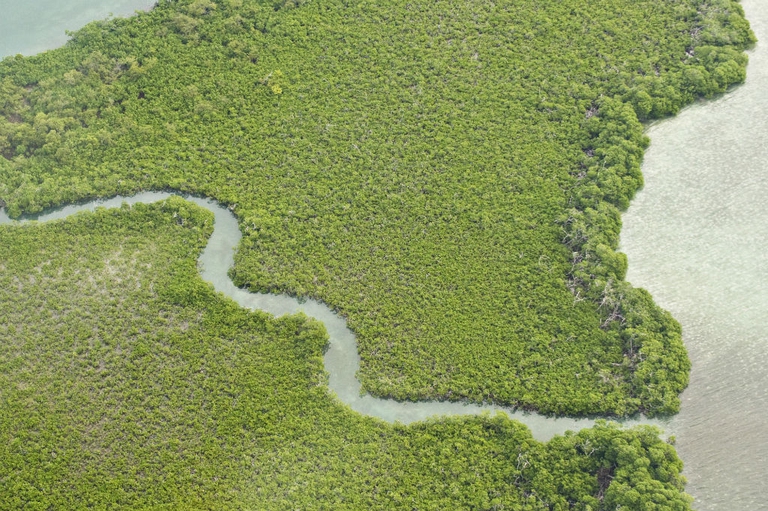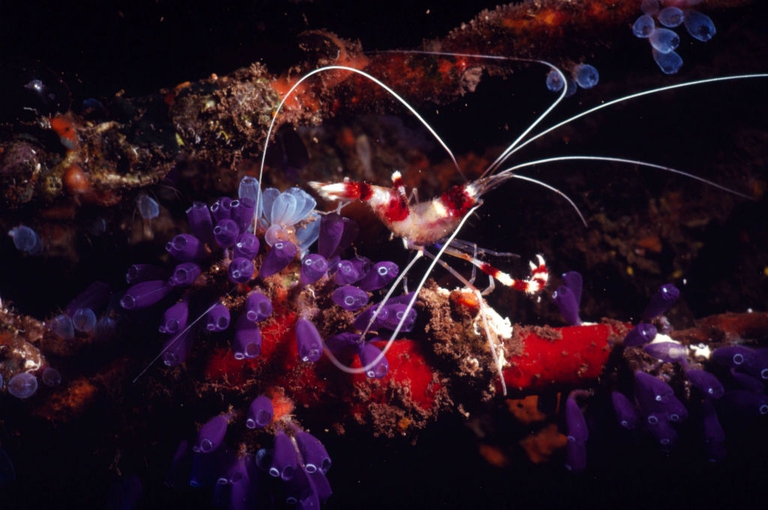
A group of experts in Tokyo suggested pouring radioactive water from Fukushima into the open sea. A marine biochemist explains the consequences of this absurd decision.
Oil isn’t attractive anymore. The coral reef and the ocean are worth more protecting instead. This is the historic decision made by Belize, small Central American country on the border with Mexico and Guatemala that has banned all future oil explorations within its territorial water in order to protect its great barrier reef. The Belize
Oil isn’t attractive anymore. The coral reef and the ocean are worth more protecting instead. This is the historic decision made by Belize, small Central American country on the border with Mexico and Guatemala that has banned all future oil explorations within its territorial water in order to protect its great barrier reef. The Belize Barrier Reef, which is the world’s second-largest reef after Australia’s, is a UNESCO World Heritage site and home to over 1,400 species, many of which are threatened with extinction.
“Belize is a small country making a mighty commitment to putting the environment first. By acting to remove a major threat to the reef, Belize is safeguarding its future prosperity,” said Nadia Bood, reef scientist at WWF Belize. “We hope this bold step will encourage other countries to follow suit and take the urgent actions needed to protect our planet’s oceans”.
“This is great news for Belize. Not only has its government listened to calls to protect the Belize Barrier Reef, which only a year ago was under threat from seismic oil exploration, it has stepped up to become a world leader in ocean protection by ending all oil activity in its waters,” Bood added. “This is a ground-breaking move for a country with a struggling economy.
The Belize Barrier Reef provides livelihoods to most of its population (about 350,000 people) thanks to fishery (directly) and tourism (indirectly). According to Fanny Douvere, UNESCO World Heritage Marine Programme coordinator, “Belize’s economy relies on tourism, which generates 182 to 237 million dollars each year thanks to the barrier reef. This legislation is a major milestone toward removing the second largest reef system in the world from the in danger list. The World Heritage Committee is expected to take its decision on this matter at its next session in June-July 2018”.
World Heritage Site since 1996, the Belize Barrier Reef is home to atolls, hundreds of sandbanks, mangrove forests, and coastal lagoons. It’s a unique place that gives shelter to endangered species, including the hawksbill sea turtle (Eretmochelys imbricata), the manatee (Trichecus manatus) and at least six species of sharks. “This is truly ‘The People’s Law’,” said Oceana’s Vice President for Belize Janelle Chanona. Belizeans have remained steadfast in their opposition to offshore oil since they became aware that marine assets were at risk of irreversible damage from the offshore oil industry”.
Big win in 2017. Over 400,000 of you came together last year to urge a ban of offshore oil activities in the stunning Belize #reef and World Heritage Site. YOU made it happen! Belize has just signed the ban into law! #WWF2017Recap #SaveBelize https://t.co/2hltQhhuRy pic.twitter.com/oI8diOeQ9i
— Marco Lambertini (@WWF_DG) 13 gennaio 2018
This is one of the effects of climate change and the subsequent increase in global temperatures, including ocean temperature. Australia’s Great Barrier Reef, which extends for 2,400 square kilometres, is bleaching at unprecedented rate. This means that corals will die if temperatures don’t decrease and normal conditions aren’t restored. Belize’s decision marks a crucial step in protecting these fragile environments, demonstrating that the economy and nature protection can coexist in harmony.
Siamo anche su WhatsApp. Segui il canale ufficiale LifeGate per restare aggiornata, aggiornato sulle ultime notizie e sulle nostre attività.
![]()
Quest'opera è distribuita con Licenza Creative Commons Attribuzione - Non commerciale - Non opere derivate 4.0 Internazionale.
A group of experts in Tokyo suggested pouring radioactive water from Fukushima into the open sea. A marine biochemist explains the consequences of this absurd decision.
The decline in grey and humpback whales in the Pacific and Atlantic Oceans has been traced to food shortages caused by rising ocean temperatures.
The United Nations has launched a major international alliance for ocean science, undertaking a mission close to all our hearts.
The cargo ship that ran aground off the coast of Mauritius on 25 July, causing incalculable damage, has split in two and its captain has been arrested.
The largest coral reef in the world is severely threatened by climate change, but researchers are developing strategies that could contribute to saving the Great Barrier Reef.
Seychelles have extended its marine protected area, which now covers over 400,000 square kilometres, an area larger than Germany.
Norwegian oil giant Equinor had pulled out of drilling for oil in the Great Australian Bight, one of the country’s most uncontaminated areas. A victory for activists and surfers who are now campaigning for the area to be protected forever.
30 per cent of the planet needs to be protected to stop precipitous species decline. The UN has set out its aims for the the COP15 on biodiversity scheduled for Kunming, China in October.
Ocean warming has risen to record highs over the last five years: just in 2019 the heat released into the world’s oceans was equivalent to that of 5-6 atomic bombs per second. The culprit, no doubt, is climate change.









